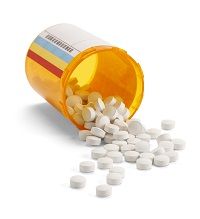Article
Curbing Prescription Drug Abuse Through Increased Provider Awareness
Author(s):
Increasing health care providers' level of awareness and concern regarding prescription drug abuse in their communities may help encourage voluntary reductions in prescribing and/or dispensing of controlled substances

Georgia State University researchers suggest that increasing health care providers’ general level of awareness and concern regarding prescription drug abuse in their communities may help encourage voluntary reductions in prescribing and/or dispensing of controlled substances.
Whereas concern regarding America’s prescription drug abuse epidemic was generally high across the major health care professions included in the study, a significant minority or providers, especially among dentists, showed little or no concern about the epidemic. Concern about prescription drug abuse was found to affect providers’ practices.
“Our research suggests that a number of health care providers already have voluntarily begun to change their prescribing and dispensing practices in ways that may be reducing the supply of scheduled prescriptions in communities,” the researchers said.
Published in the January 2016 issue of Pain Physician Journal, the findings are the results of a survey of nearly 6,000 physicians, nurse practitioners, physician assistants, dentists, and pharmacists in Indiana. Participants were asked about prescription drug abuse in their community. Variation in the level of concern was examined using ordinary least squares regression and information regarding demographic background and clinical experience. Logistic regression was used to determine if concern was associated with changing prescribing and/or dispensing behavior.
The majority of providers responding to the survey indicated that they were either “moderately” or “extremely concerned” about prescription drug abuse in their communities. However, levels of concern varied significantly by profession; pharmacists, physicians, nurse practitioners, and physician assistants were more concerned than dentists. Those providers with higher levels of concern also reported recently changing their prescribing and/or dispensing behavior. The finding is encouraging, as the costs associated with opioid abuse alone reached $56 million in 2007 and has likely increased, according to the report.
“This research underscores the critical importance of engaging health care providers fully in public health efforts to reverse the course of the prescription drug epidemic,” the report concluded.





